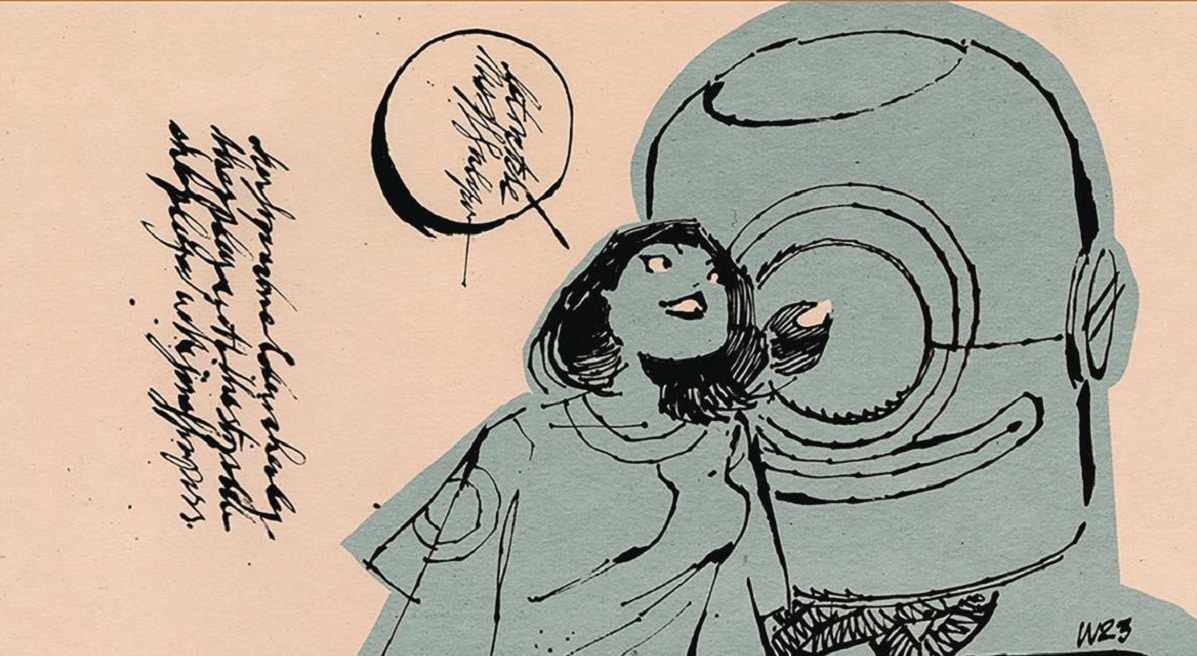
Recent comic book series from mainstream publishers designed to appeal to older readers haven’t done as well as hoped. Just because we have more folks reading comic books beyond the age of 17 doesn’t mean they’re automatically going to read past the age of 35 or 40, or with the same passion and enthusiasm. We also don’t know that a younger generation will continue to read comics on-line or with the same fidelity their grandparents displayed in following them in the newspaper. Comics is in uncharted territory reader-wise, and an economic downturn may hasten some trends rather while reversing others. Don’t be surprised by the suddenness of some outcomes.
¶ We’re not sure who Michael Petersen is but his very long essay A Question of Accessibility: Studying Pathology and Archaeology (Warren Ellis, Superheroes) is one of the most thoughtful overviews of how comics fit into current culture (at least as seen from the cultural standpoint of the kind of people who read — or once read — alternative papers) we’ve seen in a long time:
For a period in the late 90’s, comics had what they called a “widescreen” movement. If film uses the term “comic book movie” to refer to overblown superhero blockbusters that rely upon recognition more than they do consistent narrative or emotional depth, there’s some small level of irony to the idea that comics use the term “widescreen” to refer to books that are all bombastic, over-the-top action to the detriment of everything else; cool explosion visuals in place of the moralism of Golden Age DC Comics or the tortured family stories of Stan Lee and Jack Kirby. If all comic books are going to be Chris Claremont’s “X-Men” books, then all films will be Michael Bay’s action movies.




I’m trying to get into the Petersen piece, but the idea of starting an essay with reference to what Warren Ellis thinks or does seems a little like building your house with an eye to what the roaches will think about it.
“If all comic books are going to be Chris Claremont’s “X-Men” books, then all films will be Michael Bay’s action movies.”
I understand what they are trying to say but I have to take issue with using Claremont as an example for “lack of substance or originality.” Claremont is a fucking legend and certainly deserves more respect than the guy that brought us The Island and (according to IMDB) 5 more in the next 12 months. Yes I liked The Rock but that’s pretty much it. Woody Allen is the definition of prolific, Michael Bay just “cant say no.”
And I’ve been reading comics and visiting conventions/signings for the last 25 years and I’ve never heard the term, “widescreen” used to describe the crap of the late 90s. If you want to discuss Michael Bay more accurately, maybe the author should have used the other analogy from the late 90’s comic scene, multiple covers. Slap a different title on Mr. Bay’s films and they can be re-sold with the same crappy content inside. And like the 90s, people will buy them until they realize its crap. Some never make that distinction.
Yeah, I don’t know why this “widescreen” tag is supposed to describe any momentous change in comics. Wasn’t 1960s Jack Kirby the very definition of “widescreen?” Was Warren Ellis even born back then?
Contrary to what it may sound like above, I don’t hate or even particularly dislike the work of Warren Ellis. I just don’t think that it’s all that momentous, and for all Chris Claremont’s faults, I think he’s contributed a helluva lot more to the comics medium.